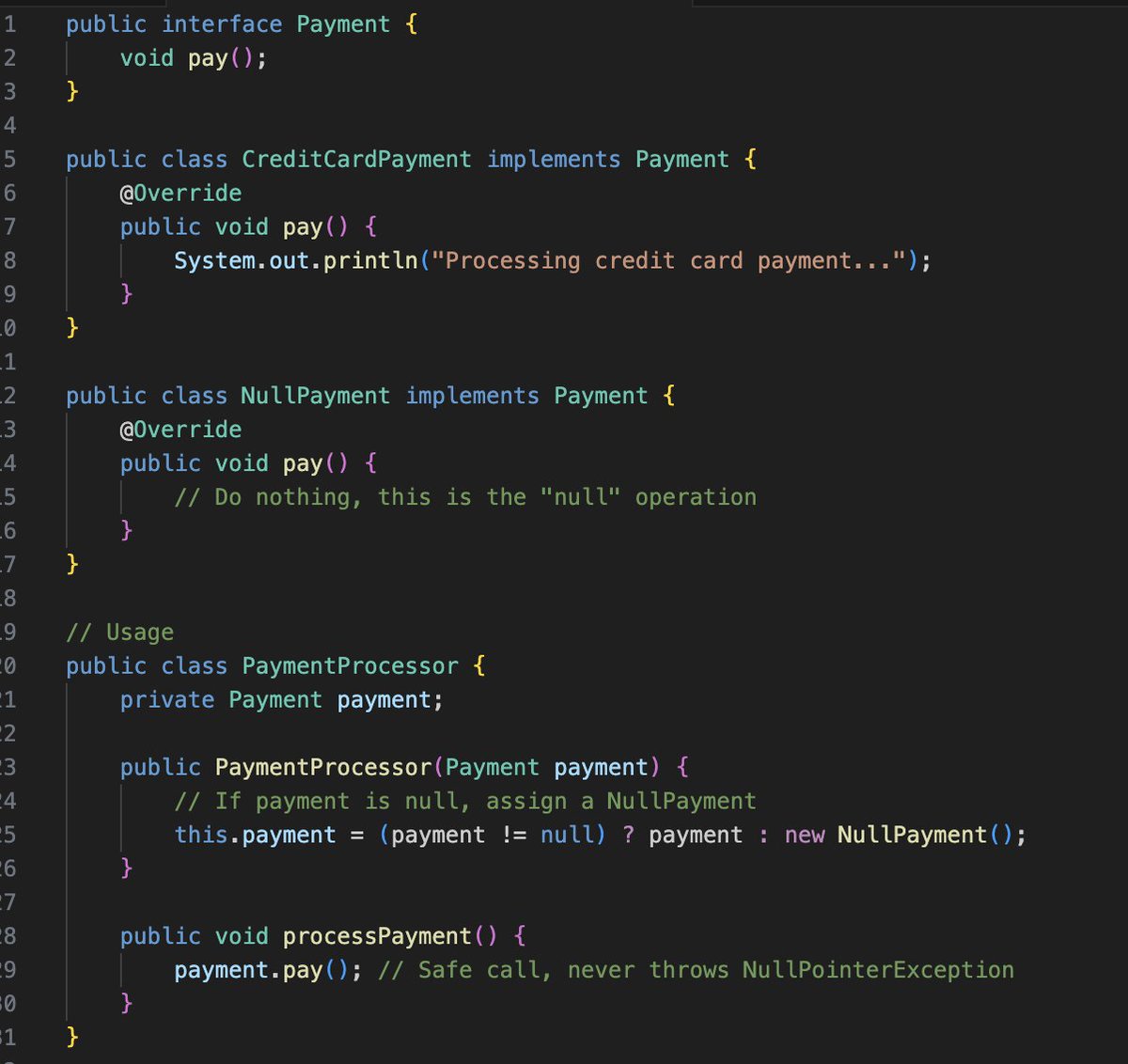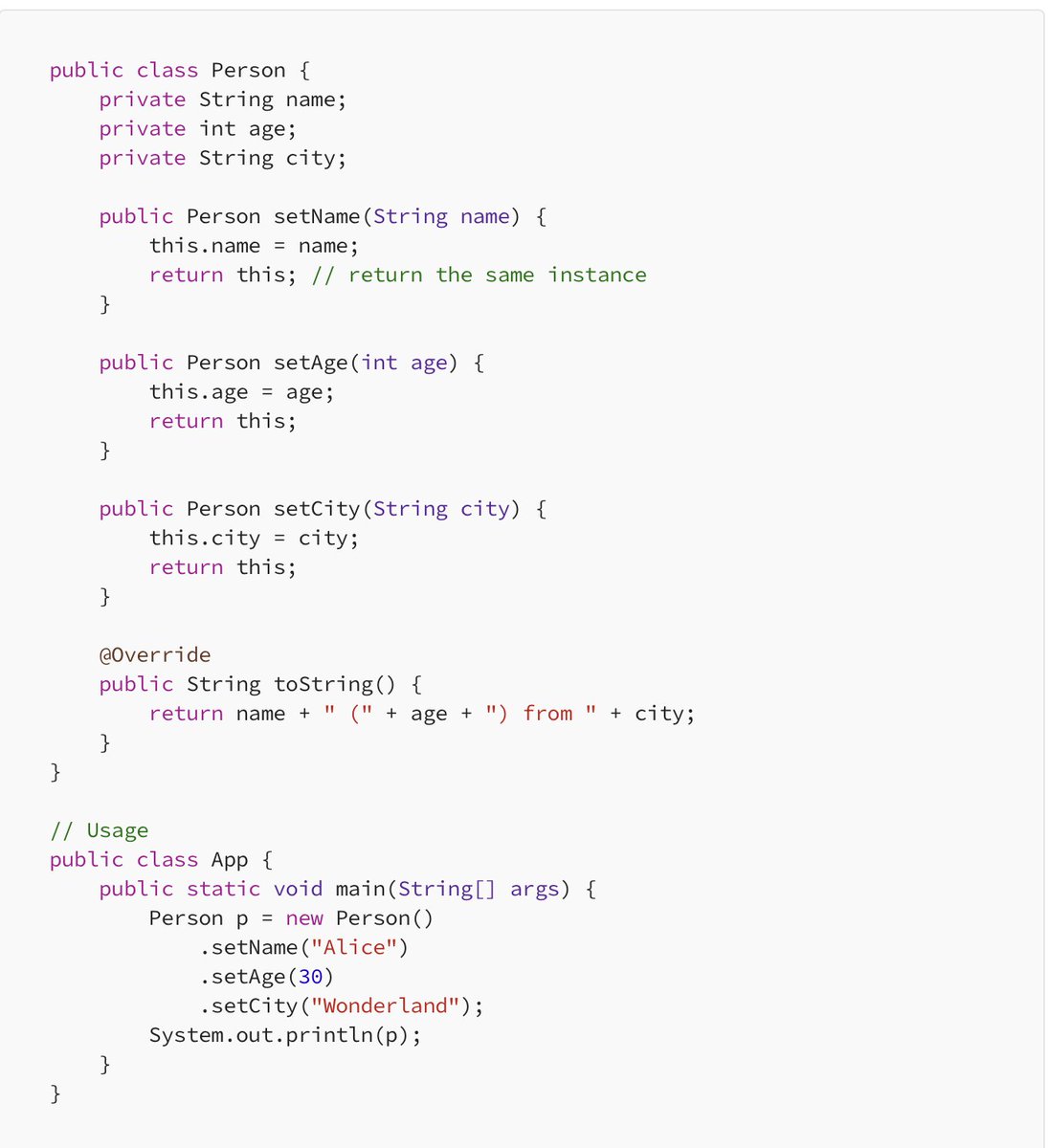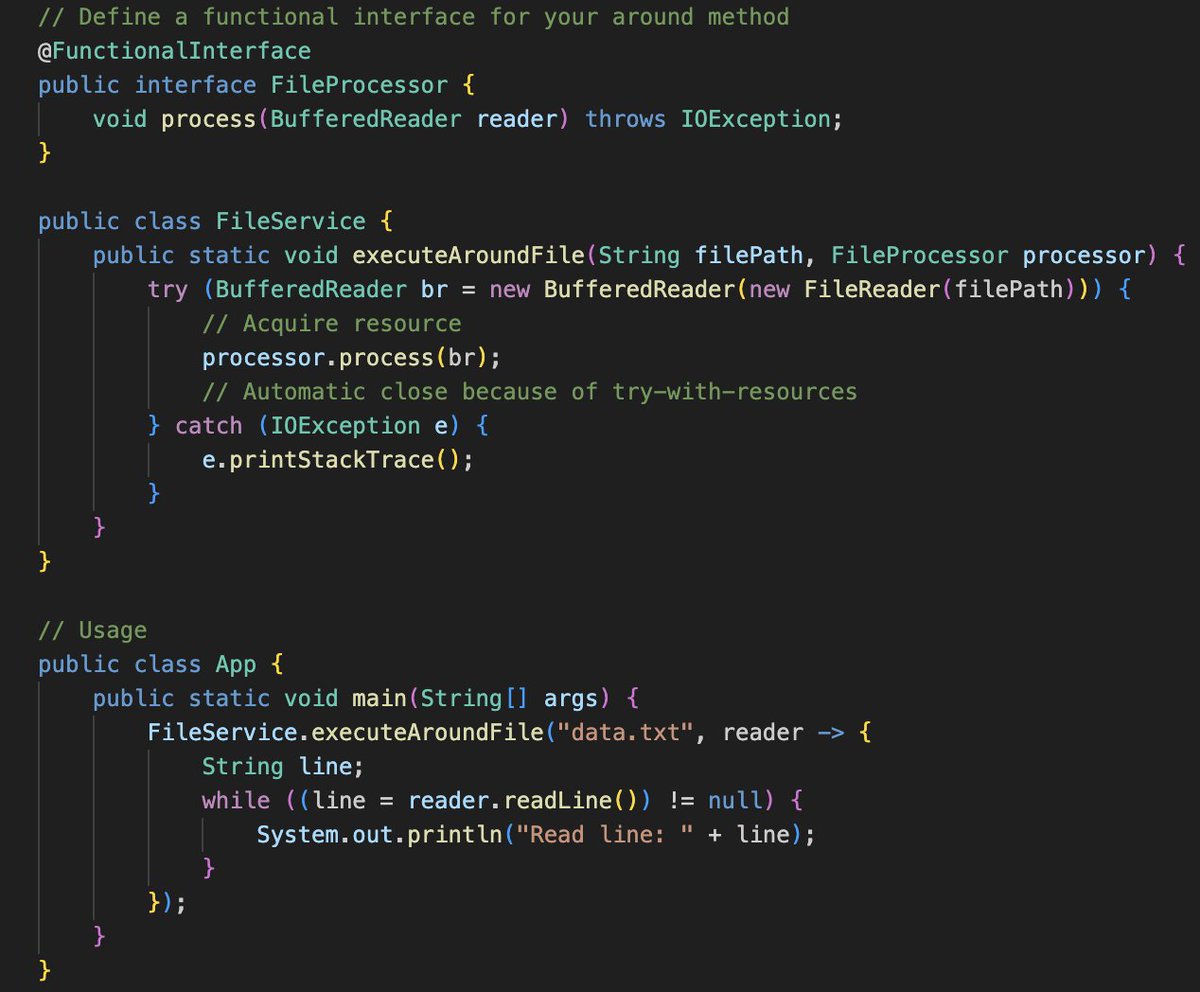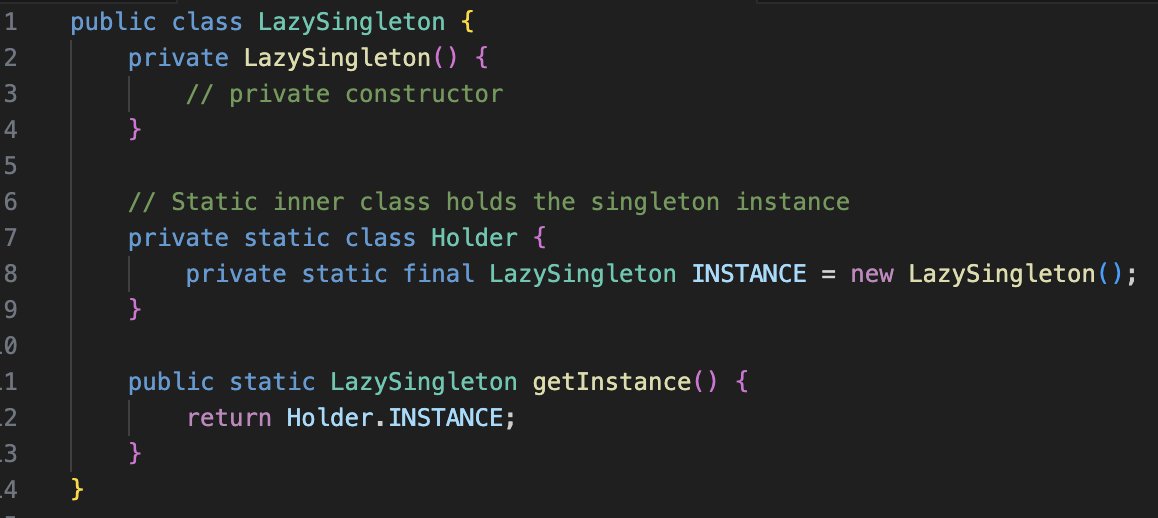Some Rare but Invaluable Java Patterns 🧵 1) Null Object Pattern Avoid null checks by using a no-op object that implements expected behavior. It keeps code clean by avoiding conditionals around method calls (e.g., if (obj != null) everywhere). Use when returning null leads…

2) Parameter Object Pattern Bundle related parameters into a single object. You can pass the parameter object around different layers, ensuring consistency. Use when methods have too many related args.

3) Fluent Interface / Method Chaining Chain method calls for better readability. Communicates intent clearly (especially in builder-like objects). Use in builders or config-style setups.

4) Execute Around Method Pattern Abstract setup/teardown around an operation. Prevents resource leaks by always handling teardown properly. Use for resource management (e.g. opening/closing files/DB).

5. Initialization-on-Demand Holder (a variant of Singleton) Lazy-load a singleton safely without synchronized. Use when you want performant, thread-safe singleton.

United States Trends
- 1. Horford 1,224 posts
- 2. Will Richard 4,224 posts
- 3. #AEWDynamite 18.7K posts
- 4. Westbrook 3,928 posts
- 5. #Survivor49 3,135 posts
- 6. Kuminga 2,752 posts
- 7. Podz 1,738 posts
- 8. Sochan 1,673 posts
- 9. Klay 6,899 posts
- 10. Spencer Knight N/A
- 11. Bertuzzi N/A
- 12. #AmphoreusStamp 3,015 posts
- 13. #ChicagoPD 1,031 posts
- 14. #SistasOnBET 2,232 posts
- 15. Dalton Knecht N/A
- 16. Bronny 4,224 posts
- 17. Godzilla 30.3K posts
- 18. Pat Spencer N/A
- 19. Unplanned 4,838 posts
- 20. Nico Harrison N/A
Something went wrong.
Something went wrong.

